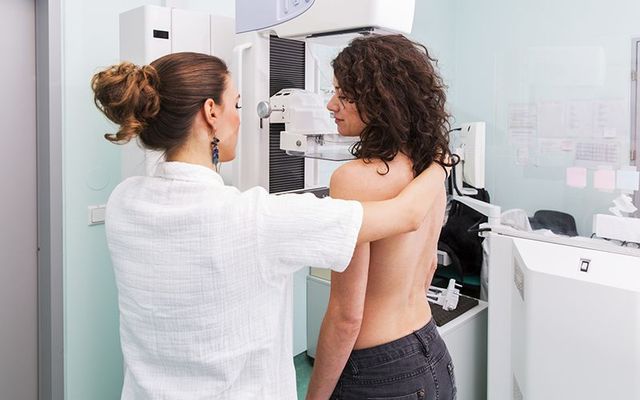Researchers at the National University of Ireland, Galway, have found a way to improve the response to chemotherapy and reduce relapse for patients with triple negative breast cancer.
Scientists from the Apoptosis Research Centre at NUI Galway have found that targeting the IRE1 stress response pathway may improve the response to chemotherapy and reduce relapse for patients with triple negative breast cancer. These first in world research findings were published in the internationally renowned Nature Communications journal.
Triple negative breast cancer (TNBC) is one of the most aggressive and difficult to treat forms of breast cancer. This type of breast cancer accounts for around 15% of all breast cancers diagnosed and occurs more frequently in younger women. Unlike other forms of breast cancer, there are no targeted therapies available for triple negative breast cancer. Currently, chemotherapy is the mainstay treatment, and although initially successful, a large percentage of TNBC patients relapse within one to three years of treatment and have a poor long-term prognosis.
The exact mechanism of the tumor relapse post chemotherapy remained unknown until now. In this study, the research team, led by Professor Afshin Samali at NUI Galway have shown for the first time that IRE1, which is a cellular stress sensor that normally acts to alleviate short-term stresses within cells, such as lack of nutrients or oxygen, is a central driver of treatment-related relapse.
Read more: Confronting three generations of schizophrenia on a journey home to Ireland
Professor Afshin Samali, Director of the Apoptosis Research Centre at NUI Galway, said: “This study is the result of extensive laboratory experiments, analysis of breast cancer patient samples, testing pre-clinical models of triple negative breast cancer and collaboration with our international and industry partners. The new era of precision oncology aims to tailor treatments to individual cancer patients and here at NUI Galway, we are excited to identify a new therapeutic strategy for triple negative breast cancer patients who are most in need of better treatment options. Furthermore, this strategy may benefit many other cancer patients whose cancer cells rely on activated cell stress responses to survive.”
Dr Susan Logue, first author of the study at NUI Galway, said: “This work has uncovered a previously unknown role for IRE1 and suggests that it may represent a good therapeutic target for the treatment of triple negative breast cancer. While further research is needed, this work is a great example of how curiosity-driven basic research can lead to translational outcomes with real potential to impact on patient treatment.”
Read more: County Cork town to become Ireland’s first official autism-friendly town
The team discovered that chemotherapy can activate the IRE1 stress response in triple negative breast cancer, leading to the production of survival signals that are pumped out of the cell to support the growth of new cancer cells. Most importantly, the study showed that this process can be halted by specifically inhibiting IRE1 using a clinically-relevant, small molecule drug called MCK8866 that not only improves the effectiveness of the initial chemotherapy treatment, but also reduces relapse of this aggressive form of breast cancer.
Using triple negative breast cancer cells treated with chemotherapy, the research team found that blocking IRE1 activity reduced the production of survival signals, and in turn reduced the growth of new cancer cells by 50%. Furthermore, in a pre-clinical model of TNBC, the drug increased the effectiveness of chemotherapy treatment, leading to regression of 8 out of 10 cancers compared to regression of just 3 out of 10 cancers using chemotherapy alone. The combination of the MCK8866 drug with chemotherapy also reduced tumor relapse in this pre-clinical model of triple negative breast cancer.
In addition to these laboratory-based experiments, an analysis of 595 patient tumors revealed that triple negative breast cancer tumors displayed the highest IRE1 activity compared to other subtypes, suggesting that IRE1 may be of particular importance in TNBC. This discovery suggests that combining chemotherapy with IRE1 inhibitors could offer substantial benefits for triple negative breast cancer patients.
The study was funded by Science Foundation Ireland, Irish Cancer Society and Horizon 2020 with initial funding from Breast Cancer Now.
Read more: No country to get sick–my 93-year-old relative waits 48 hours for treatment in Galway hospital




Comments